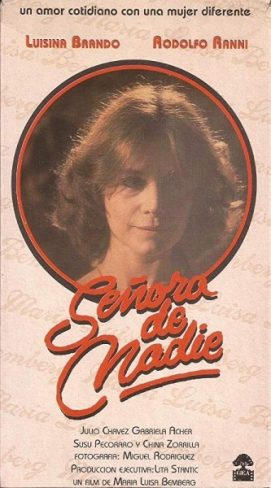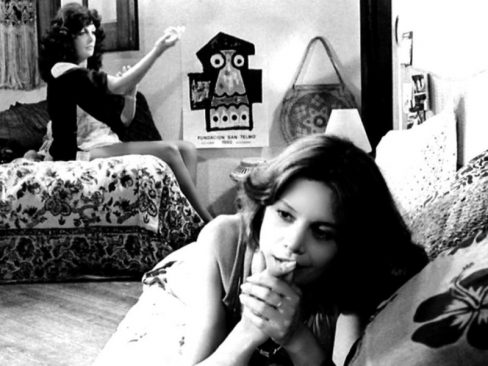 María Luisa Bemberg was one of the most important woman film directors to emerge not just from Argentina but from Latin America as a whole. Her powerful feminine sensibility, combined with a willingness to satirise (or even condemn) the aristocratic class from which she herself stemmed, made her an enormously influential figure. Julie Christie, who starred in Bemberg’s Miss Mary (1986), told Adam Feinstein: ‘María Luisa was a political, sisterly person to work with and had a great sense of humour. We were all very fond of her. She had always chafed at the restrictions put on her creativity as a result of the perception of women in Argentina at the time. And she was very brave to break out of her class background so outspokenly. I’m very sad that she is no longer with us as she had so much more to give – and knew it.’
María Luisa Bemberg was one of the most important woman film directors to emerge not just from Argentina but from Latin America as a whole. Her powerful feminine sensibility, combined with a willingness to satirise (or even condemn) the aristocratic class from which she herself stemmed, made her an enormously influential figure. Julie Christie, who starred in Bemberg’s Miss Mary (1986), told Adam Feinstein: ‘María Luisa was a political, sisterly person to work with and had a great sense of humour. We were all very fond of her. She had always chafed at the restrictions put on her creativity as a result of the perception of women in Argentina at the time. And she was very brave to break out of her class background so outspokenly. I’m very sad that she is no longer with us as she had so much more to give – and knew it.’
Bemberg made only six feature films before her death in 1995. She is best-known outside Argentina for the Oscar-nominated Camila (1984), but her first two full-length films, Momentos (Moments) (1981) and Señora de nadie (Nobody’s Wife) (1982), made in the last years of Argentina’s military dictatorship, reveal a highly intelligent movie-maker rapidly finding her cinematic ‘voice’.
In Señora de nadie, as in all her films, Bemberg expressed her fascination for women who do not follow the model laid out for them. Luisina Brando, already well-known for her work with other prominent Argentinian directors such as Leopoldo Torre Nilsson, Adolfo Aristarain, Fernando Ayala and Juan José Jusid, plays an upper middle-class woman, Leonor, whose comfortable life falls apart when she learns of her husband’s infidelity. She sets out on a voyage of self-discovery, determined to regain control of her life. The ‘subversive’ message of the film was that the heterosexual relationship had no chance of succeeding in the Argentina of the early 1980s unless one of the parties, the woman, resigned her right to respect – and therefore, self-respect. Leonor is not prepared to play this game. The sexual liberalism of Señora de nadie – shot during the Falklands War of 1982 – was dangerously challenging to the symbolic order on which the dictatorship was based (even though the military regime does not appear in the film at all).
The film will be introduced by Adam Feinstein.
Doors open at 18.30, for a 19.30 start.
Refreshments will be available in our licensed cafe/bar.
TICKETS & PRICING
Tickets in advance £8.50 (£6.50 concessions). On the door £10 (£7 concessions).
Advance tickets may be purchased from Billetto, or direct from the Museum by calling 020 7840 2200 in office hours.




